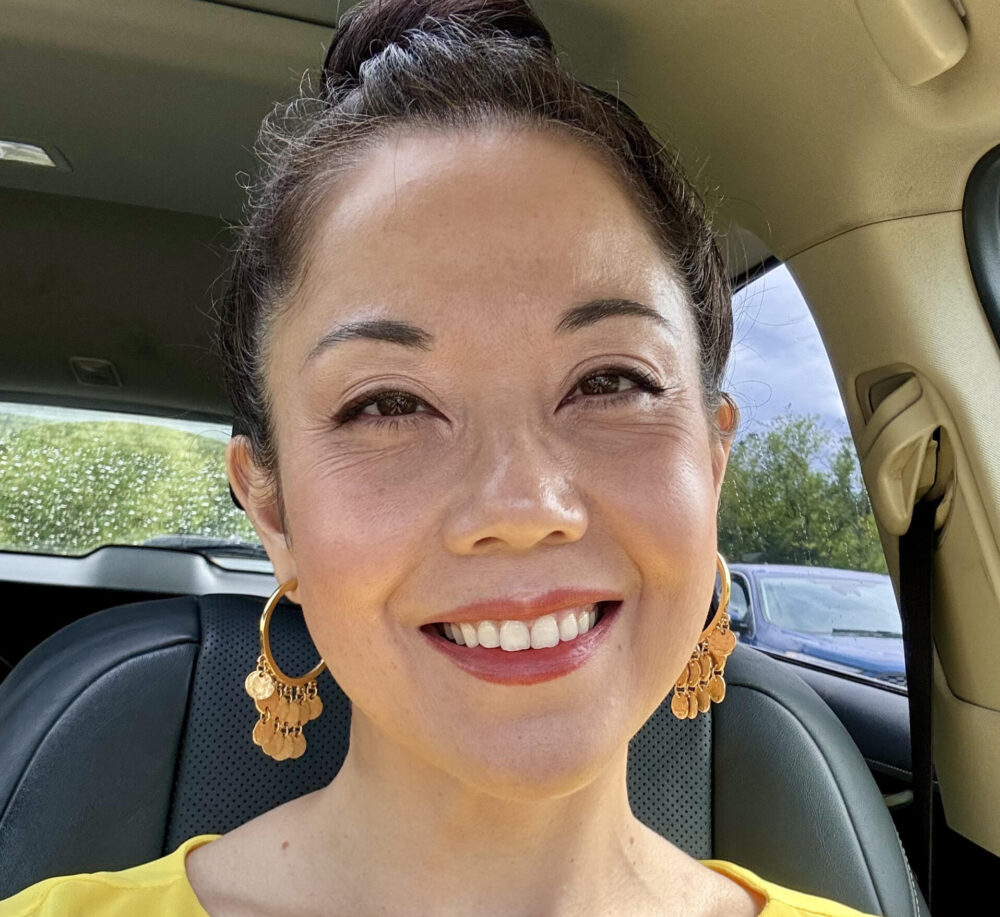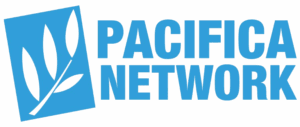KMRE News pursues a solutions journalism approach to many of the stories we cover.
A solutions journalism approach investigates and explains, in a critical and clear-eyed way, how people try to solve community problems. While journalists usually define news as “what’s gone wrong,” solutions journalism tries to expand that definition because responses to problems are also newsworthy. By adding rigorous coverage of solutions, journalists can tell a more complete story.
Done well, solutions stories provide valuable insights that help communities with the difficult work of tackling problems like homelessness or climate change, skyrocketing housing prices or low voter turnout. Research shows that solutions stories can change the tone of public discourse, making it less divisive and more constructive. By revealing what has worked, such stories can lead to meaningful change.
KMRE News Advisory Board
KMRE relies on a News Advisory Board for review and guidance. Our advisory board consists of:

Rachel Showalter
Born and raised in the San Francisco Bay Area, Rachel is a multimedia journalist with a background in broadcast production, announcing and reporting.
She graduated from Cal Poly, San Luis Obispo in 2019 with a degree in journalism before working as a news producer at KSBY-TV in San Luis Obispo. She went on to report for KCBX Central Coast Public Radio, San Luis Obispo’s NPR affiliate, before moving to the Pacific Northwest to join The Bellingham Herald. She currently reports on housing, renters rights, homelessness and development. Rachel is a staunch lover of This American Life, New York Times crosswords, and soaking up the sun with her partner Max.

Anastacia Baird
Staci Baird is a journalist and a techie with a passion for community, education and local news. She was previously the journalism advisor at Whatcom Community College.
After working for almost two decades as a journalism educator, she is now general manager for local news startup, Cascadia Daily News. Staci is a veteran digital content producer who previously worked for MSN Money, E.W. Scripps Newspaper Interactive, CBS Interactive, Lucasfilm, and Stanford University. She is passionate about digital publishing, accessibility and user experience. As the former editor-in-chief of a quarterly print and online newspaper in Southern California, she helped train community journalists to report, write and publish multimedia news stories. When Staci isn’t working, you may find her up in the sky working on her private pilot’s license, exploring the trails and parks around our amazing county with her family, or crossing the border into Canada to grab a box of Timbits.

AJ Barse
AJ Barse is a podcaster and award winning and world traveling photographer, Instructional Technologist and Instructor for WWU ATUS Department. Former Communication Director for Lummi Nation, AJ previously taught
digital media and web technologies at Northwest Indian College in the heart of the Pacific Northwest. As a freelancer, he uses his media and photography skills throughout the world, and enjoys adventuring across all time and relative dimensions in space.

Kari Mar
Kari Mar is an Uchinanchu journalist and technologist residing in Seattle. An expert in data and AI,
she advises organizations on issues surrounding ethics, diversity, inclusion, and charting a path for the future that is sustainable for future generations. Kari is a member of the Journalism and Women Symposium, and Asian American Journalists Association and Indigenous Journalists Association.

Deran Browne
Deran is a filmmaker that knows that the story is key. As well as an academic who believes in project-based learning; an administrative leader with international experience,
and an educator who provides support for faculty and guidance for students in curricular, research and instructional areas.

Policies
We believe in transparency with our process and our approach. Below, please find a listing of our news gathering policies.
Donor and Financial Transparency Policy
We are committed to transparency in every aspect of funding our organization.
Accepting financial support does not mean we endorse donors or their products, services or opinions.
We accept gifts, grants and sponsorships from individuals, organizations and foundations to help with our general operations, coverage of specific topics and special projects. As a 501(c)(3) nonprofit that operates as a public trust, we do not pay certain taxes. We may receive funds from standard government programs offered to nonprofits or similar businesses.
Our news judgments are made independently – not based on or influenced by donors or any revenue source. We do not give supporters the rights to assign, review or edit content. We make public all revenue sources and donors who give $5,000 or more per year. As a news nonprofit, we avoid accepting charitable donations from anonymous sources, government entities, political parties, elected officials or candidates seeking public office. We will not accept donations from sources who, deemed by our board of directors, present a conflict of interest with our work or compromise our independence.
Conflict of Interest Policy
The following Financial Conflict of Interest Policy (“Conflict of Interest Policy”) is an effort (i) to ensure that the deliberations and decisions of KULSHAN COMMUNITY MEDIA (“KCM”) are made solely in the interest of promoting the quality of journalism in the state of WASHINGTON (if applicable), and (ii) to protect the interests of KCM when it considers any transaction, contract, or arrangement that might benefit or be perceived to benefit the private interest of a person affiliated with KCM (each, a “KCM Representative”). As used in this Conflict of Interest Policy, a KCM Representative includes any director, advisory board KCM, financial advisor, legal counsel or employee.
Duty to KULSHAN COMMUNITY MEDIA. Each KCM Representative owes a duty to KCM to advance KCM’s legitimate interests when the opportunity to do so arises. Each KCM Representative must give undivided allegiance when making decisions affecting the organization. Similarly, KCM Representatives must be faithful to KCM’s nonprofit mission and are not permitted to act in a way that is inconsistent with the central goals of the organization and its nonprofit status.
Gifts. No KCM Representative shall personally accept gifts or favors that could compromise his or her loyalty to KCM. Any gifts or benefits personally accepted from a party having a material interest in the outcome of KCM or its employees by a KCM Representative individually should be merely incidental to his or her role as an KCM Representative and should not be of substantial value. Any gift with a value of $250 or more, or any gifts with a cumulative value in excess of $250 received by an KCM Representative in any twelve-month period from a single source, shall be considered substantial. Cash payments may not be accepted, and no gifts should be accepted if there are strings attached. For example, no KCM Representative may accept gifts if he or she knows that such gifts are being given to solicit his or her support of or opposition to the outcome or content of any KCM publication.
Conflicts of Interest. The following are examples of conflicts of interest which must be promptly disclosed to the KCM Board of Directors pursuant to Section 4 below by any KCM Representative with knowledge of such conflict of interest:
(a) any real or apparent conflict of interest between a donor or the subject of an KCM publication or report and an KCM Representative;
(b) an KCM Representative’s ownership of an equity interest in a person or entity that is or will be the subject of an KCM publication or report; and
(c) failure to disclose to KCM all relationships between the subject of any KCM publication or report and any KCM Representative or close relatives of the KCM Representative.
Conflict Procedure:
(a) If an KCM Representative or party related to an KCM Representative has an interest in any contract, action or transaction to be entered into with KCM, a conflict of interest or potential conflict of interest exists. Any KCM Representative having knowledge that such a conflict of interest exists or may exist (an “Interested KCM Representative”) will so advise the Board of Directors promptly. An Interested KCM Representative will include in the notice the material facts as to the relationship or interest of the Interested KCM Representative in the entity proposing to enter into a contract, action or transaction with KCM.
(b) Notwithstanding anything herein to the contrary, the Board of Directors may authorize any committee appointed pursuant to the KCM by-laws (a “Committee”) to act in lieu of the Board of Directors in determining whether an action, contract or transaction is fair to KCM as of the time it is authorized or approved by the Committee.
(c) At any time that a conflict of interest or potential conflict of interest is identified, the President of the Board or a Chair of the applicable Committee will ensure that such conflict of interest is placed on the agenda for the next meeting of the Board of Directors or the Committee, as applicable. The notice of such meeting of the Board of Directors or the Committee, as applicable, will include, to the extent available when the notice is sent, a description of the conflict of interest matter to be discussed. By notice before the meeting or at the meeting, the directors on the board or the Committee, as applicable, will be advised that a vote will be taken at the meeting and that, in order to authorize the relevant contract, action or transaction, an affirmative vote of a majority of disinterested directors present at the meeting at which a quorum is present will be required and will be sufficient, even though the disinterested directors constitute less than a quorum of the Board of Directors or the Committee.
(d) Reasonable effort will be made to cause the material facts concerning the relationships between the individuals and KCM which create the conflict to be delivered to and shared with the KCMs of the Board of Directors or the Committee, as applicable, prior to the meeting to enable the directors to arrive at the meeting prepared to discuss the issue. In the event it is not practicable to deliver the information prior to the meeting, it will be delivered to the directors at the meeting, and the directors can act upon the matter with the same authority as if notice had been given prior to the meeting.
(e) The Board of Directors or the Committee, as applicable, will invite all parties to the conflict of interest to attend the meeting, to make presentations and to be prepared to answer questions, if necessary. The Board or Directors or the Committee, as applicable, will also invite outside experts if necessary.
(f) At the meeting, providing a quorum is present, the conflict will be discussed to ensure that the directors present are aware of the issues and the factors involved. The interested directors may be counted for purposes of a quorum, even though they may not take part in any vote on the issues.
(g) The Board of Directors or the Committee, as applicable, must decide, in good faith, reasonably justified by the material facts, whether the action, contract or transaction would be in the best interest of KCM and fair to KCM as of the time it is authorized or approved.
(h) All interested directors must abstain from voting and, if necessary, leave the room when the vote is taken.
(i) The Board of Directors or the Committee, as applicable, will maintain a written account of all that transpires at the meeting and incorporate such account into the minutes of the meeting and disseminate it to the full Board of Directors. Such minutes will be presented for approval at the next meeting of the Board of Directors and maintained in the corporate record book.
(j) To the extent that the conflict of interest is continuing and the contract, action or transaction goes beyond one (1) year, the foregoing notice and discussion and vote will be repeated on an annual basis.
Personal Loans. KCM may not loan to, or guarantee the personal obligations of, any KCM Representative.
Accessibility, Diversity, Inclusion, & Equity
At Kulshan Community Media/KMRE we believe a diverse, inclusive, and equitable workplace is one where all employees and volunteers, whatever their gender, race, ethnicity, national origin, age, sexual orientation or identity, education or disability, feels valued and respected. We are committed to a nondiscriminatory approach and provide equal opportunity for employment and advancement in all of our departments, programs, and worksites. We respect and value diverse life experiences and heritages and ensure that all voices are valued and heard.
We’re committed to modeling diversity and inclusion for the entire arts industry of the nonprofit sector, and to maintaining an inclusive environment with equitable treatment for all.
To provide informed, authentic leadership for cultural equity, Kulshan Community Media/KMRE strives to:
- See diversity, inclusion, and equity as connected to our mission and critical to ensure the well-being of our staff and the communities we serve.
- Acknowledge and dismantle any inequities within our policies, systems, programs, and services, and continually update and report organization progress.
- Explore potential underlying, unquestioned assumptions that interfere with inclusiveness.
- Advocate for and support board-level thinking about how systemic inequities impact our organization’s work, and how best to address that in a way that is consistent with our mission.
- Help to challenge assumptions about what it takes to be a strong leader at our organization, and who is well-positioned to provide leadership.
- Practice and encourage transparent communication in all interactions.
- Commit time and resources to expand more diverse leadership within our board, staff, committee, and advisory bodies.
- Lead with respect and tolerance. We expect all employees to embrace this notion and to express it in workplace interactions and through everyday practices.
Kulshan Community Media/KMRE abides by the following action items to help promote diversity and inclusion in our workplace:
- Pursue cultural competency throughout our organization by creating substantive learning opportunities and formal, transparent policies.
- Generate and aggregate quantitative and qualitative research related to equity
to make incremental, measurable progress toward the visibility of our diversity, inclusion, and equity efforts. Once the content is curated it will be added to our website so others can access. - Improve our cultural leadership pipeline by creating and supporting programs and policies that foster leadership that reflects the diversity of American society.
- Pool resources and expand offerings for underrepresented constituents by connecting with other arts organizations committed to diversity and inclusion efforts.
- Develop and present sessions on diversity, inclusion, and equity to provide information and resources internally, and to members, the community, and the arts industry.
- Develop a system for being more intentional and conscious of bias during the hiring, promoting, or evaluating process. Train our hiring team on equitable practices.
- Include a salary range with all public job descriptions.
Advocate for public and private-sector policy that promotes diversity, inclusion, and equity. Challenge systems and policies that create inequity, oppression and disparity.
Statement of Editorial Independence
We subscribe to standards of editorial independence adopted by the Institute for Nonprofit News:
Our organization retains full authority over editorial content to protect the best journalistic and business interests of our organization. We maintain a firewall between news coverage decisions and sources of all revenue. Acceptance of financial support does not constitute implied or actual endorsement of donors or their products, services or opinions.
We accept gifts, grants and sponsorships from individuals and organizations for the general support of our activities, but our news judgments are made independently and not on the basis of donor support.
Our organization may consider donations to support the coverage of particular topics, but our organization maintains editorial control of the coverage. We will cede no right of review or influence of editorial content, nor of unauthorized distribution of editorial content. Our organization will make public all donors who give a total of $5,000 or more per year. We will accept anonymous donations for general support only if it is clear that sufficient safeguards have been put into place that the expenditure of that donation is made independently by our organization and in compliance with INN’s Membership Standards.
Policy on Anonymous Sources
Transparency is critical to our credibility with the public and our subscribers. Whenever possible, we pursue information on the record. When a newsmaker insists on background or off-the-record ground rules, we must adhere to a strict set of guidelines, enforced by AP news managers.
Under AP’s rules, material from anonymous sources may be used only if:
1. The material is information and not opinion or speculation, and is vital to the report.
2. The information is not available except under the conditions of anonymity imposed by the source.
3. The source is reliable, and in a position to have direct knowledge of the information.
Reporters who intend to use material from anonymous sources must get approval from their news manager before sending the story to the desk. The manager is responsible for vetting the material and making sure it meets AP guidelines. The manager must know the identity of the source, and is obligated, like the reporter, to keep the source’s identity confidential. Only after they are assured that the source material has been vetted by a manager should editors and producers allow it to be used.
Reporters should proceed with interviews on the assumption they are on the record. If the source wants to set conditions, these should be negotiated at the start of the interview. At the end of the interview, the reporter should try once again to move onto the record some or all of the information that was given on a background basis.
The AP routinely seeks and requires more than one source when sourcing is anonymous. Stories should be held while attempts are made to reach additional sources for confirmation or elaboration. In rare cases, one source will be sufficient – when material comes from an authoritative figure who provides information so detailed that there is no question of its accuracy.
We must explain in the story why the source requested anonymity. And, when it’s relevant, we must describe the source’s motive for disclosing the information. If the story hinges on documents, as opposed to interviews, the reporter must describe how the documents were obtained, at least to the extent possible.
The story also must provide attribution that establishes the source’s credibility; simply quoting “a source” is not allowed. We should be as descriptive as possible: “according to top White House aides” or “a senior official in the British Foreign Office.” The description of a source must never be altered without consulting the reporter.
We must not say that a person declined to comment when that person is already quoted anonymously. And we should not attribute information to anonymous sources when it is obvious or well known. We should just state the information as fact.
Written stories that use anonymous sources must carry a reporter’s byline. If a reporter other than the bylined staffer contributes anonymous material to a story, that reporter should be given credit as a contributor to the story.
All complaints and questions about the authenticity or veracity of anonymous material – from inside or outside the AP – must be promptly brought to the news manager’s attention.
Not everyone understands “off the record” or “on background” to mean the same things. Before any interview in which any degree of anonymity is expected, there should be a discussion in which the ground rules are set explicitly.
These are the AP’s definitions:
On the record. The information can be used with no caveats, quoting the source by name.
Off the record. The information cannot be used for publication. Background. The information can be published but only under conditions negotiated with the source. Generally, the sources do not want their names published but will agree to a description of their position. AP reporters should object vigorously when a source wants to brief a group of reporters on background and try to persuade the source to put the briefing on the record.
Deep background. The information can be used but without attribution. The source does not want to be identified in any way, even on condition of anonymity.
In general, information obtained under any of these circumstances can be pursued with other sources to be placed on the record.
ANONYMOUS SOURCES IN MATERIAL FROM OTHER NEWS SOURCES
Reports from other news organizations based on anonymous sources require the most careful scrutiny when we consider them for our report.
AP’s basic rules for anonymous source material apply to material from other news outlets just as they do in our own reporting: The material must be factual and obtainable no other way. The story must be truly significant and newsworthy. Use of anonymous material must be authorized by a manager. The story we produce must be balanced, and comment must be sought.
Further, before picking up such a story we must make a bona fide effort to get it on the record, or, at a minimum, confirm it through our own reporting. We shouldn’t hesitate to hold the story if we have any doubts. If another outlet’s anonymous material is ultimately used, it must be attributed to the originating news organization and note its description of the source.
ATTRIBUTION Anything in the AP news report that could reasonably be disputed should be attributed. We should give the full name of a source and as much information as needed to identify the source and explain why the person is credible. Where appropriate, include a source’s age; title; name of company, organization or government department; and hometown. If we quote someone from a written document – a report, email or news release — we should say so. Information taken from the internet must be vetted according to our standards of accuracy and attributed to the original source. File, library or archive photos, audio or videos must be identified as such. For lengthy stories, attribution can be contained in an extended editor’s note detailing interviews, research and methodology
Funders over $5,000
2023 Whatcom Community Foundation, $20,000
Diversity & Equity Statement
Diversity, Equity, and Inclusion Statement
At Kulshan Community Media (KMRE 88.3FM), diversity, equity, and inclusion are at the heart of our mission to amplify community voices, especially those that are often underheard and overlooked. As a small, all-volunteer nonprofit, we are committed to creating a platform that reflects the rich diversity of Whatcom County and provides equitable opportunities for participation in our programs, services, and resources.
Our organization prohibits discrimination against any individual based on their race, color, religion, sex, sexual orientation, gender identity, national origin, age, disability, or veteran status. We are committed to providing equal opportunities in employment, services, and programs for all individuals.
We recognize that systemic barriers can prevent individuals from accessing media platforms to share their stories. To address this, we actively engage with diverse populations and partner with community groups to ensure that voices from non-majority communities are not only included but centered in our work. We reach out to these groups directly, fostering relationships built on trust, respect, and collaboration. Through these partnerships, we co-create opportunities for individuals within these communities to share their unique experiences and perspectives in ways that feel authentic to them.
Rather than waiting for people to come to us, we prioritize proactive outreach to recruit people and producers from historically underrepresented groups. We provide support, resources, and mentorship to empower them to tell their stories in their own voices. By doing so, we help bring attention to the multitude of lived experiences that contribute to the fabric of our growing community.
Kulshan Community Media is committed to fostering an inclusive environment where everyone feels valued and heard. Through our dedication to diversity and equity, we strive to break down barriers, challenge stereotypes, and ensure that all voices have a place in our community dialogue.
Corrections Policy
We are responsible for correcting errors in a timely manner that is abundantly clear to the audience. Errors will be corrected on the KMRE website, on transcripts, and wherever available. Additionally, all partners distributing KMRE content are alerted to errors and will run KMRE issued corrections. Please report any errors to KMRE News Director at newsdirector@kmre.org .
Advertising Acceptability Policy
KMRE reserves the right to accept or decline any advertisement or sponsorship it is offered.
KMRE will decline to accept advertising that it knows or believes to be misleading, inaccurate, fraudulent or illegal, or that fails to comply, in Kulshan Community Media’s sole discretion, with its standards of decency, taste or dignity.
KMRE, like all quality publishers of original journalism, maintains a clear separation between news and advertising content. Advertising that attempts to blur this distinction in a manner that, in KMRE’s sole judgment, confuses readers will be rejected.
Acceptance of Government Funding
KCM does not consider it a conflict if nonprofit news organizations accept structural government support that is available to all media or all similar businesses and doesn’t impinge on editorial independence. In other words, it involves no government assessment or involvement in news coverageExamples could include the tax benefits of being a 501(c)3; government funding through the Corporation for Public Broadcasting; or PPP loans available to help businesses maintain jobs through the economic disruptions of the COVID pandemic. We do not accept government funds that can be given or withheld based on judgments about news coverage.
Code of Ethics
KMRE News abides by the Society of Professional Journalists Code of Ethics found here.
Privacy Policy
It is important that visitors to our site understand what information we gather about them, how we use it, and how we work to protect it. By using our website, and/or signing up for services such as membership or our newsletter, you consent to information practices outlined in our Privacy Policy.
Information Collection
We track how our visitors use this site so that we can see what people like and don’t like. We also analyze and aggregate information about use patterns and share the aggregated data with our advertisers (for example, we keep track of how many users see and click on particular advertisements). We may also collect personal information about you via registration for newsletters, commenting, donations, membership and other areas. Where you have an opportunity to supply information about yourself you may choose not to provide requested information but in such cases you may not be able to use certain functions on this website.
We will not release your name, email address or any other personal information to anyone outside kmre.org without your consent, unless we are under a legal order to do so, or there is an emergency involving danger to a person or property. We will not provide our advertisers or anyone else outside KMRE.org with any information specific to you unless we have your consent.
If you chose to provide your personally identifiable information for the purposes of a third-party contest, survey or newsletter, your consent shall be deemed to be given for the release of your personally identifiable information with regard to that third party only, in addition to KMRE.org. Only authorized KMRE employees or consultants are allowed access to personal information about you. Any employee or consultant who violates our privacy and security policies is subject to disciplinary action.
We occasionally have service contractors, third party agents, subsidiaries, affiliates, and joint ventures that perform functions on our behalf, including but not limited to credit card processing and website hosting. They have access to personal information needed to perform their functions, and are contractually obligated to maintain the confidentiality and security of the data. They are restricted from using or altering this data in any way other than to provide the requested services to KMRE.org. In addition, we may always share, disclose, and transfer all information, postings, and any and all other personal and non-personal information we have collected to a successor-entity in the case of the sale of the assets of KMRE.org, corporate reorganization, merger, change in control, or other similar transaction.
Remember that any information you share in public areas, such as the KMRE.org comments area, becomes public and therefore this Privacy Policy does not apply to any information you choose to make public. We encourage visitors to KMRE.org to be cautious about what they disclose and that they do not post any personal information that they expect to keep private. Personally Identifiable Information is information that can be used to contact you or determine your specific identity. If other information is linked to this information, it also becomes Personally Identifiable Information.
Use and Disclosure of Anonymous Information
Anonymous Information is any information other than Personally Identifiable Information, including aggregate information derived from Personally Identifiable Information.
KMRE.org may use this information:
To improve the KMRE.org website and service, to monitor traffic and general usage patterns, and for other general business purposes.
To inform publishers as to what content is appealing to readers, to inform advertisers of the usage habits or characteristics of the interested audience, and to advise potential donors so that they may better understand KMRE.org’s user base.
Cookies
A cookie is a small amount of data, which often includes an anonymous unique identifier that is sent to your browser from a web site’s servers and stored on your computer. Each web site can send its own cookies to your browser if your browser’s preferences allow it, but (to protect your privacy) most browsers only permit a web site to access the cookies that the same web site has already sent to you, not the cookies sent to you by other sites.
KMRE.org may use cookies to identify you as a repeat visitor or customer of the website, to maintain session information for logged in users, and to track usage trends and patterns in order to better understand and improve areas of our website.
KMRE.org has no control over whether and how our advertisers use cookies that originate from their website. You are always free to decline our cookies if your browser permits, but you may not be able to take full advantage of our site’s features.
We may choose to use third-party advertising companies to serve ads on our behalf. These companies may employ cookies and action tags to measure advertising effectiveness. All computers and servers on the internet use IP addresses to recognize and communicate with each other. We collect IP addresses to administer and analyze our site and report aggregate, non-personal information (such as how many visitors we have). When you call up our site on your computer, our servers enter the IP address of that computer into a log. To maintain our users’ anonymity, we do not associate IP addresses with records containing personal information.
We do not and cannot use cookies or IP address tracking to retrieve personal information from your computer.
Security
KMRE.org employs a number of security methods designed to prevent unauthorized access, maintain data accuracy, and ensure correct use of information. Any personal data we may have access to will be stored within a database that is located behind a firewall for added security.
No data transmission over the Internet or any wireless network can be guaranteed to be secure. As a result, while we try to protect your personal information, we cannot ensure or guarantee the security of any information you transmit to us, and you do so at your own risk. We are not liable for the illegal acts of any third party.
We do not encrypt normal web sessions, however any transmission to the kmre.org website or service of credit card information uses SSL encryption to help protect the data.
Links to Other Sites
KMRE.org occasionally provides links and pointers to Web sites maintained by other organizations. KMRE.org provides these links as a convenience to users, but it does not operate or control such sites. KMRE.org also disclaims any responsibility for the information on those sites and any products or services offered there, and cannot vouch for the privacy policies of such sites. KMRE.org does not make any warranties or representations that any linked sites, or this site, will function without error or interruption, that defects will be corrected, or that the sites and their servers are free of viruses and other problems that can harm your computer.
Opt Out
If at any time you would like to unsubscribe from receiving future emails, we include detailed unsubscribe instructions at the bottom of each email.
Children
KMRE.org is not directed to children (persons under the age of 13), and we do not knowingly collect, either online or offline, Personally Identifiable Information from children. If you believe that we have received information from a person under 13, please contact us by email at info@kmre.org or in writing at KMRE.org and we will take appropriate action.
Changes to this Privacy Policy
KMRE.org may change its privacy policy from time to time. If we make any changes regarding disclosure of Personally Identifiable Information to third parties, we will post notice of the new policy on our home page.
Disclaimers and Limitations of Liability
ALTHOUGH WE TAKE REASONABLE STEPS TO PREVENT THE INTRODUCTION OF VIRUSES, WORMS, OR OTHER DESTRUCTIVE MATERIALS AND PROGRAMS TO OUR SITE, WE DO NOT GUARANTEE OR WARRANT THAT OUR SITE OR MATERIALS THAT MAY BE DOWNLOADED FROM OUR SITE ARE FREE FROM SUCH DESTRUCTIVE FEATURES. WE ARE NOT LIABLE FOR ANY DAMAGES OR HARM ATTRIBUTABLE TO SUCH FEATURES. WE ARE NOT LIABLE FOR ANY CLAIM, LOSS OR INJURY BASED ON ERRORS, OMISSIONS, INTERRUPTIONS OR OTHER INACCURACIES IN OUR SITE, NOR FOR ANY CLAIM, LOSS OR INJURY THAT RESULTS FROM YOUR USE OF THIS SITE OR YOUR BREACH OF ANY PROVISION OF THIS AGREEMENT.
Questions
If you have any questions regarding our Privacy Policy or our use of your information, please email feedback@kmre.org
Child Safety Policy
KMRE Community Radio Child Safety Policy
Purpose
This policy ensures that KMRE provides a safe, welcoming environment for youth, while outlining the responsibilities of parents, guardians, staff, and volunteers.
Definitions
KMRE Community Radio: KMRE’s facilities, including studios and event spaces.
Parent, Guardian, or Caregiver: An adult responsible for a minor.
Child/Children: Persons under the age of 13.
Minor/Youth: Persons under the age of 18.
Teen: Persons aged 13–17.
Unaccompanied Minor: A youth visiting KMRE without a supervising adult.
KMRE Staff: Employees of KMRE Community Radio.
KMRE Volunteers: Cleared volunteers working with KMRE in an official capacity.
Youth Program: KMRE activities specifically designed for youth aged 0–17.
Policy Details
Youth Use of KMRE
- KMRE welcomes youth to participate in its activities and events.
- Youth programs will include age recommendations based on content and activities.
- Staff and volunteers are available to assist youth and families with KMRE resources and activities.
Parental Responsibility
- Parents and guardians are responsible for the behavior and safety of their children while at KMRE.
- For programs aimed at children (0–12), a responsible adult must accompany the child unless otherwise specified. If adult participation is optional, it is recommended that they remain on-site.
- Teens (13–17) may attend youth programs independently unless stated otherwise.
Safety Guidelines
- All KMRE patrons, including youth, are expected to follow KMRE’s Rules of Conduct.
- KMRE facilities, including studio areas, are intended for appropriate use by youth and their caregivers. Adults unaccompanied by youth may be asked to relocate.
- One-on-one interactions between staff/volunteers and minors will occur only in open, observable spaces.
- KMRE staff and volunteers will avoid private communications with minors unless related to KMRE activities and conducted transparently.
Incident Protocol
- KMRE staff cannot provide childcare or supervision for unaccompanied children.
- In cases where an unaccompanied minor is left at KMRE after closing, staff will attempt to contact a parent or guardian. If they cannot be reached, local authorities may be contacted for assistance.
Staff and Volunteer Standards
- KMRE staff and volunteers will undergo appropriate background checks prior to working with youth.
- Regular youth safety training will be provided to all staff and volunteers.
- Any misconduct or inappropriate behavior involving minors must be reported immediately to KMRE management.
Policy Review
This policy will be reviewed periodically by KMRE leadership to ensure it remains effective and relevant to the station’s mission and community needs.




